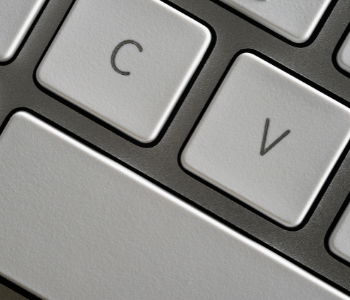The Impact of the Internet on Plagiarism

When people learn what I do for a living, one of the first questions I am usually asked is, “Has the internet made plagiarism much worse?”
It’s easy to see why it’s a question. Anecdotally, it feels like plagiarism stories are becoming much more common. Just over the sixteen years I’ve been writing for this site, there’s been a marked increase in the number of news stories about plagiarism and the amount of interest in the topic.
Still, the internet has been publicly accessible for more than 25 years, and it has changed all our lives in significant ways that we are only beginning to understand. Obviously, it’s had an impact on plagiarism, but that raises a question: How did the web change plagiarism?
The answer isn’t straightforward and, in truth, we may never really know the full story. Still, it’s worth taking a few minutes to try and understand the ways the internet changed plagiarism and is continuing to do so moving forward.
A Double-Edged Sword
When it comes to plagiarism, the internet is very much a double-edged sword.
On one hand, it’s made plagiarism much easier. Previously, one would have to do a great deal of work not just finding content to plagiarize but retyping it to distribute it under their name. The amount of work required to plagiarize wasn’t significantly less than the amount of work required to rewrite and attribute.
In this light, the internet obviously caused a massive increase in the amount of plagiarism. When something is easier to do, more people do it. That part is human nature. However, it also created a new reason to commit plagiarism: As a time/work shortcut. In short, the internet made it much easier to plagiarize a document than to create an original one.
The internet also gave people more opportunities to become plagiarists. Before the internet, few people wrote regularly in a way that was expected to be read by an audience. Outside of published authors and journalists, it was an activity mostly limited to academia.
However, we live in an era where absolutely anyone can write and find an audience. Between blogs, social media, forums, YouTube and a million other sites, one doesn’t have to be in a writing profession to be a widely read author.
When you combine the ease of plagiarism with the increased opportunities, it’s almost a guarantee that plagiarism has greatly increased due to the internet. However, the other side of that sword is the detection side.
Google launched in 1998. Turnitin launched in the year 2000, Between search engines and ready-made copy detection tools, spotting plagiarism became much faster and easier than ever before.
Previously, plagiarists were caught when a reader was familiar with both the original and plagiarized work. However, even then, proving it often took a great deal of time and effort. Not anymore. It’s possible to quickly check millions of words for plagiarism fairly quickly.
This has made plagiarism much easier to detect, and we’ve seen this first hand with the work of the Vroniplag Wiki group, which has done remarkable work in spotting plagiarism in old dissertations and theses.
Today, it’s possible for a very casual searcher to do a more thorough search for plagiarism than the greatest expert would have been able to do just 40 years ago. This is especially true for copy and paste plagiarism.
In short, plagiarism is almost definitely on the rise, but it’s also much easier to detect. Those things combined make it feel like plagiarism has exploded in recent decades, even if the human element hasn’t changed as much as some might think.
An Ugly Truth
One thing that we have to keep in mind is that we have no way of knowing if plagiarism really is on the rise or not.
The reason is fairly simple: We don’t really know how much plagiarism exists now, and we definitely don’t know how much plagiarism existed before the internet.
The truth is that we don’t know exactly how common plagiarism is. We only know what we detect, but only a fraction is every really detected. Simply put, most works aren’t checked in any meaningful way and many types of plagiarism are still very difficult to check for.
As we digitize older works and begin to examine those, we often find that plagiarism was much more common than previously thought. Once again, the Vroniplag group has been doing exactly this with dissertations and theses and regularly found issues that had been undetected for decades.
However, most things that are written and published aren’t checked. Audiences read and consume writing via the internet, but few check for plagiarism, and those that do usually have a suspicion caused by something else.
Because of this, we don’t really know the full picture of how the internet changed plagiarism. We likely never will. The few statistics we do have, usually centered around students in the classroom, points to a continued rise of plagiarism issues, but it’s often difficult to say how much of that is attributable directly to the internet.
Strangely, we might actually have a better understanding of how the pandemic impacted plagiarism than we do the internet, simply due to the size, scope and history involved in the question.
Bottom Line
There’s not much doubt that the internet has had major impacts on plagiarism. The internet has touched nearly every aspect of our lives and there’s no reason plagiarism would be any different.
However, understanding exactly what those impacts are is a much more difficult task. We have limited knowledge of the plagiarism that is taking place today, and that information only gets fuzzier the farther back we go.
Plagiarism, by its very nature, resists being studied as it is something most go to great lengths to hide. Though the data we’re able to collect has gotten much better in recent years, there are still many blind spots today.
This is frustrating because it speaks to the very nature of authorship and creativity, two things that we are still struggling to define and understand.
Want to Reuse or Republish this Content?
If you want to feature this article in your site, classroom or elsewhere, just let us know! We usually grant permission within 24 hours.
